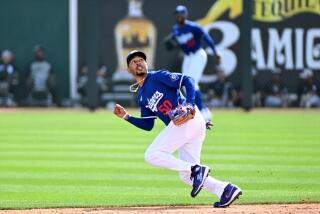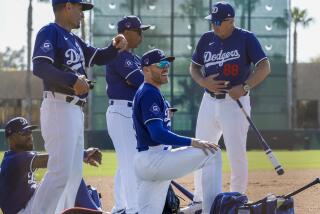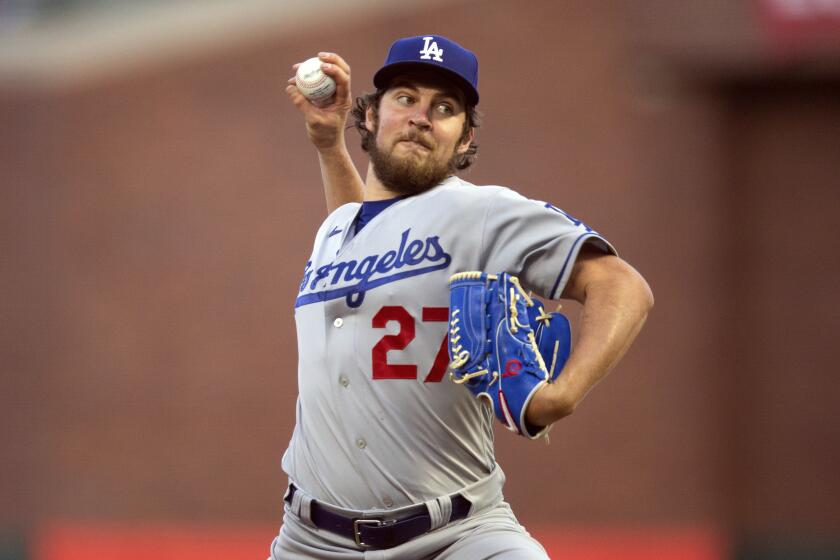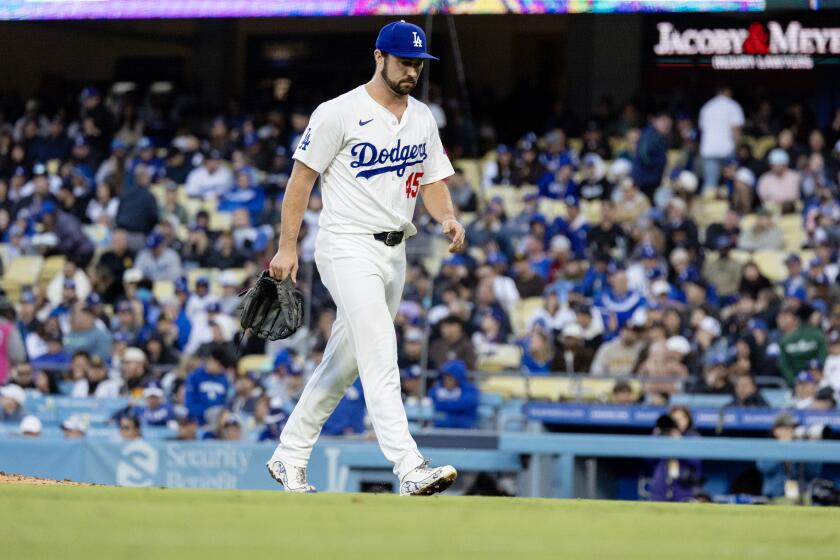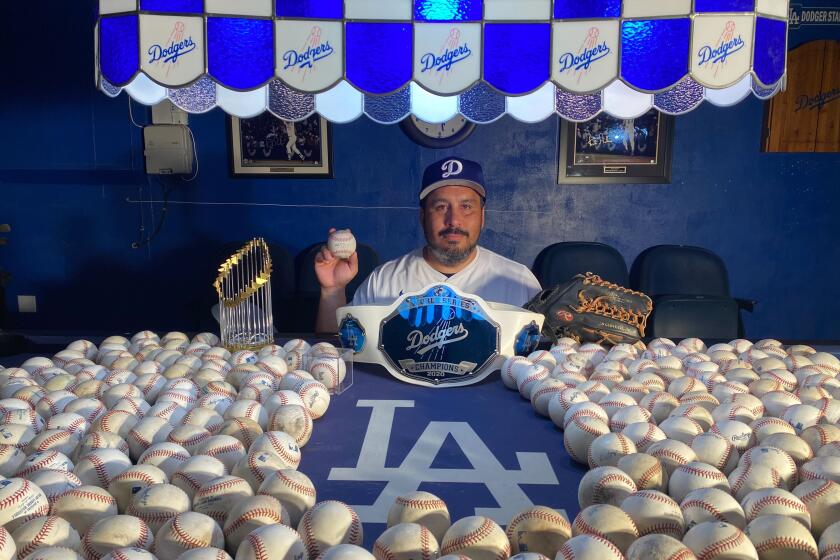Abject system makes Howie Kendrick’s loss a gain for Dodgers
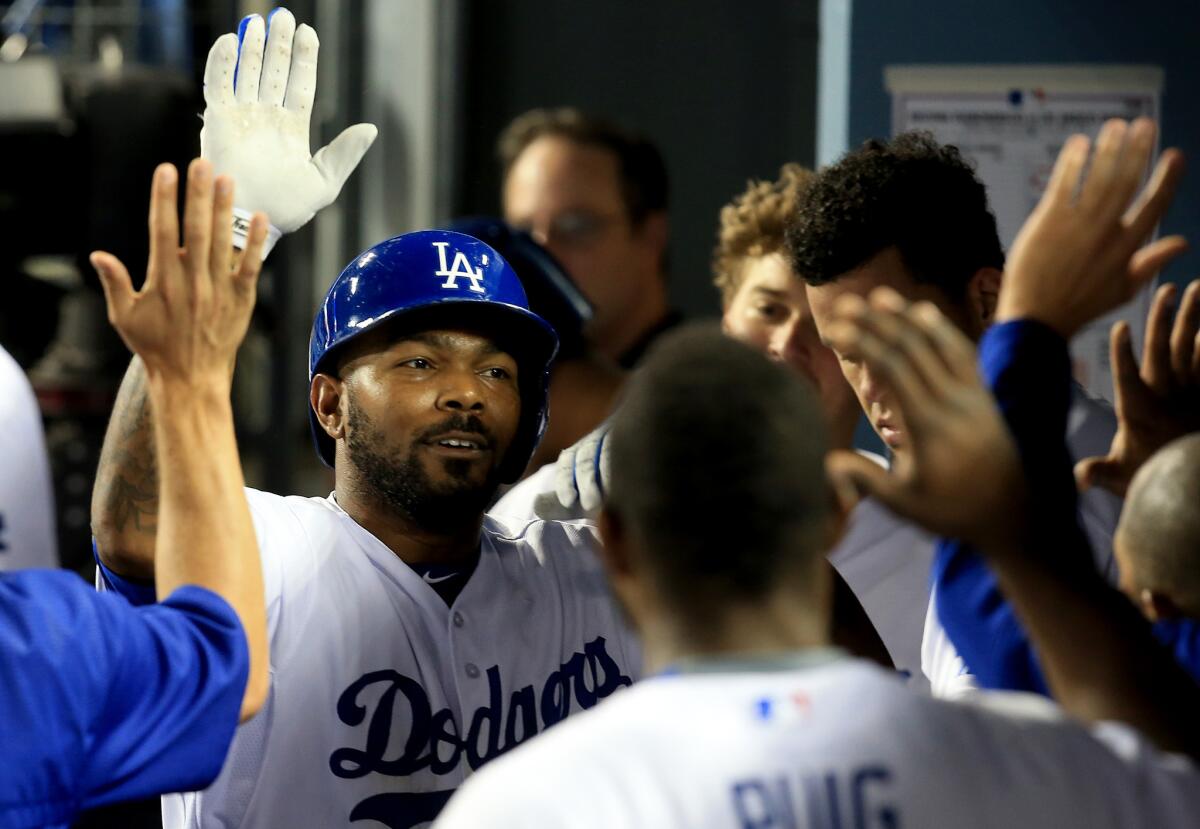
Dodgers second baseman Howie Kendrick is congratulated by teammates after hitting a solo home run against the Diamondbacks on June 9.
Howie Kendrick, poster boy.
Not exactly what Kendrick had in mind when his off-season called. He seemed headed for his first true major contract. A career of superb play now rewarded with a big free-agent payoff.
Only it never happened. Days and weeks went by and the interest never developed.
“Nothing,’’ Kendrick told USA Today’s Bob Nightengale. “I figured there would be quite a few suitors for me, and nobody was really calling. Here it is, getting close to spring training, and you keep hearing the same thing over and over.
“Nobody wanted to give up that draft pick. It was a shocker.’’
With the days dwindling and reality setting in, Kendrick ended up going back to the Dodgers for two years at a bargain $20 million, with half deferred over the next four years.
Kendrick, 32, was done in by his union’s collective bargaining agreement, one his situation figures to help modify when the next agreement comes around for negotiation.
The Dodgers extended Kendrick the $15.8-million qualifying offer last fall, which he understandably turned down. It seemed the right play at the time, Kendrick and agent Larry Reynolds obviously anticipating the phone would ring.
But rejecting the qualifying offer meant that any team but the Dodgers would have to sacrifice a first-round pick to sign Kendrick, and that proved enough deterrent that his big offer never came.
With clubs opening camp in a couple of weeks and his price falling, Kendrick agreed to return to the Dodgers. A Dodgers team that thought it had moved on without him at second base, found the system had unexpectedly brought him back.
“When you get to free agency, you’re supposed to be a free agent,’’ Kendrick told Nightengale. “Now, with this qualifying offer, teams are trying to decide: Do I make my major league team better or minor league system better?
“It forces teams to make a choice, and it’s hurting everybody. There are a lot of good players out there who can help teams.
“It’s such a strange market.’’
Outfielder Dexter Fowler, shortstop Ian Desmond and right-hander Yovani Gallardo are other veterans still caught in the messy qualifying-offer bind, the value of each severely hampered by the cost of a draft pick.
It’s not exactly what the players had in mind when they agreed to the format.
But if Kendrick has become something of an unintended victim in all this, it has served to benefit the Dodgers. His loss becomes their gain.
They are clearly a better team with him. He batted in the middle of the order all season and was one of their most productive bats (.295/.336/.409). He was solid on the field and in the clubhouse.
And now, unexpectedly, he is once again likely to be their primary second baseman.
More to Read
Are you a true-blue fan?
Get our Dodgers Dugout newsletter for insights, news and much more.
You may occasionally receive promotional content from the Los Angeles Times.
